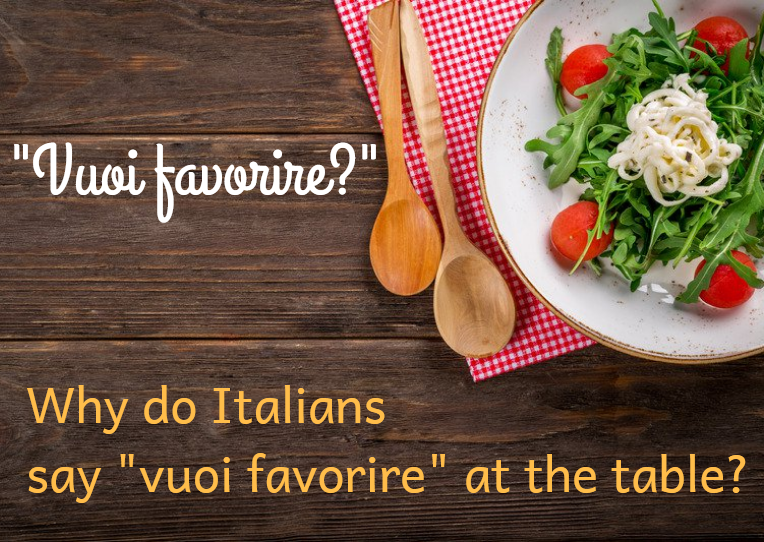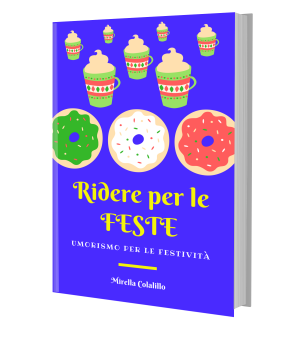
– “Buon appetito!”
– “Grazie, vuoi favorire?”
As everyone knows food is sacrosanto in Italy! Sharing and enjoying meals in the company of family and friends is central to Italian culture. In fact, we even have a popular proverb that says: “chi mangia da solo si strozza” (if you eat alone, you’ll choke).
The verb favorire, v. tr. [der. di favore] (io favorisco, tu favorisci, ecc.). to favor/to accommodate/to encourage, has many uses in the Italian language.
When it’s used at the dinner table, “Vuoi favorire?”, “ Vuole favorire?” (formal), “Volete favorire?”, it’s an invitation while eating or about to start eating, to accept your food, and to eat together.
The answer that follows is “sì, grazie, tanto per favorire. (o tanto per gradire).” The translation may sound something like “Yes, thank you, I favor your kind offer.”
In English you would say, “Would you like to join me?”, although it’s not quite the same thing. Favorire demonstrates one’s favor to a person, granting her/him help and protection. It could originate from a recent past of famine and poverty in which Italians supported each other with food, and shelter.
The generosity implicit of this word has not become obsolete. I think it’s ingrained in our DNA.
A student of mine pointed out the other day that it would be funny in North America, if everybody at a food court in a mall went around with their food asking “Vuoi favorire?”
Yes, maybe she’s right! Nevertheless, my aunt always asks “Volete favorire?” laying a tablecloth on the deck during long ferry rides to Sardinia.
Alla prossima,
Mirella
The latest articles:
- Il Discorso diretto e discorso indiretto in italiano
- I massacri delle foibe – Il Giorno del Ricordo
- Un racconto di Natale: Il Tesoro dei Poveri di Gabriele D’Annunzio
- Estate di San Martino- leggenda e tradizioni
- I verbi fraseologici: venire/andare a prendere
Laughing is good for our health and you’ll even practice Italian with my ebook:

